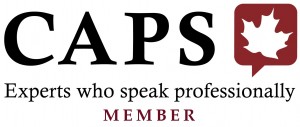We usually accept that teaching others can be a generous thing to do. Being willing to learn from others can also be generous, and a powerful way to engage the best in them.
What do your team or your colleagues know that you don’t? Have you made an effort to find out? Are you helping to create a culture of curiosity and mutual support in which people expect to learn from each other up and across the organizational chart as well as down?
If you’re leading a team, it may feel a bit unsettling to encourage people who report to you to show that they know more than you do, but of course they do. We’re not omniscient. An excellent way to bring out the best in people is to ask them to teach or explain something, even in small ways through the day. Then make the effort to actually learn it and make use of it.
The point is not to make conversation or single out people with little “relationship” tricks. The point is to train yourself in the habit of learning from your team. It helps to ask about things you have some natural interest in, but you can also find ways of being genuinely interested in what each person can offer. You might be surprised at what you can learn, and from whom. Everyone has something to teach, though it may be submerged. You can create conditions for them to discover it and offer it. That’s what makes learning a leadership practice of generosity.
There’s a lot of talk these days about “learning organizations.” What that really means is organizations with a culture of curiosity and mutual support where everyone practices learning from each other in little ways every day. Then when the “organization” needs to learn, the people in it are already good at it, and know how to engage the full spectrum of their abilities, together.
Here are a couple of ideas. What works for you?
Curiosity practice – If you’re not naturally inclined to seek out what you can learn from your team and your colleagues, you can start with safe territory. For instance, if your child is doing a history project, ask people when they’re settling down to a meeting whether anyone knows about that historical period. Ask them a question your child is addressing, and let everyone hear the answer. Share the answer with your child, and report back what they say. Or if you’ve heard that one of your team members speaks another language, ask them to teach you some phrases. Actually learn the phrases, accept coaching on pronunciation, and play with those phrases when you see that person again. The possibilities for learning are many. You can be as creative as you like.
It matters less what you learn, and more that you are open to learning from everyone.
Putting-to-use practice – The more immediately practical kind of learning is the kind that directly benefits the team’s efforts. Do you have lunch and learn sessions where people can present or report to their colleagues on relevant topics in which they have particular expertise? If you do, set the example of asking questions, being careful not to sound as if you’re testing them. Is there something in the tactical plan you’re not clear on? Who can explain it? Let them explain it to you when others can hear too. In any situation, try to notice opportunities for people to show what they know in a useful way, and then help their teaching to emerge.



